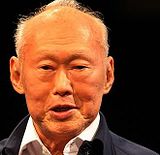- Joined
- Jul 24, 2008
- Messages
- 33,627
- Points
- 0
<TABLE border=0 cellSpacing=0 cellPadding=0 width="100%"><TBODY><TR>Nov 14, 2009
</TR><!-- headline one : start --><TR>Nasa finds water on moon <!--10 min-->
</TR><!-- headline one : end --><!-- show image if available --><TR vAlign=bottom><TD width=330>

</TD><TD width=10>
 </TD><TD vAlign=bottom>
</TD><TD vAlign=bottom>

This image provided Friday, November 13, 2009 by NASA shows the ejecta plume created by the LCROSS Centaur upper stage rocket about 20 seconds after after impact October 9, 2009. It turns out there's plenty of water on the moon- at least near the lunar south pole, scientists said Friday. -- PHOTO: AP
</TD></TR></TBODY></TABLE>
<!-- START OF : div id="storytext"-->WASHINGTON - A 'SIGNIFICANT amount' of frozen water has been found on the moon, the US space agency said on Friday heralding a giant leap forward in space exploration and boosting hopes of a permanent lunar base.
Preliminary data from a dramatic experiment on the moon 'indicates the mission successfully uncovered water in a permanently shadowed lunar crater,' Nasa said in a statement.
'The discovery opens a new chapter in our understanding of the moon,' it added, as ecstatic scientists celebrated the landmark discovery.
'Yes indeed we found water and we did not find only a little bit but a significant amount,' said Anthony Colaprete, project scientist and principal investigator for the US$79 million (S$111 million) LCROSS mission.
The data was found after Nasa sent two spacecraft crashing into the lunar surface last month in a dramatic experiment to probe Earth's nearest neighbour for water.
'In the 20 to 30m crater we found maybe about a dozen, at least, two-gallon buckets of water. This is an initial result,' Dr Colaprete told reporters. -- AFP
</TR><!-- headline one : start --><TR>Nasa finds water on moon <!--10 min-->
</TR><!-- headline one : end --><!-- show image if available --><TR vAlign=bottom><TD width=330>

</TD><TD width=10>


This image provided Friday, November 13, 2009 by NASA shows the ejecta plume created by the LCROSS Centaur upper stage rocket about 20 seconds after after impact October 9, 2009. It turns out there's plenty of water on the moon- at least near the lunar south pole, scientists said Friday. -- PHOTO: AP
</TD></TR></TBODY></TABLE>
<!-- START OF : div id="storytext"-->WASHINGTON - A 'SIGNIFICANT amount' of frozen water has been found on the moon, the US space agency said on Friday heralding a giant leap forward in space exploration and boosting hopes of a permanent lunar base.
Preliminary data from a dramatic experiment on the moon 'indicates the mission successfully uncovered water in a permanently shadowed lunar crater,' Nasa said in a statement.
'The discovery opens a new chapter in our understanding of the moon,' it added, as ecstatic scientists celebrated the landmark discovery.
'Yes indeed we found water and we did not find only a little bit but a significant amount,' said Anthony Colaprete, project scientist and principal investigator for the US$79 million (S$111 million) LCROSS mission.
The data was found after Nasa sent two spacecraft crashing into the lunar surface last month in a dramatic experiment to probe Earth's nearest neighbour for water.
'In the 20 to 30m crater we found maybe about a dozen, at least, two-gallon buckets of water. This is an initial result,' Dr Colaprete told reporters. -- AFP


 .
.